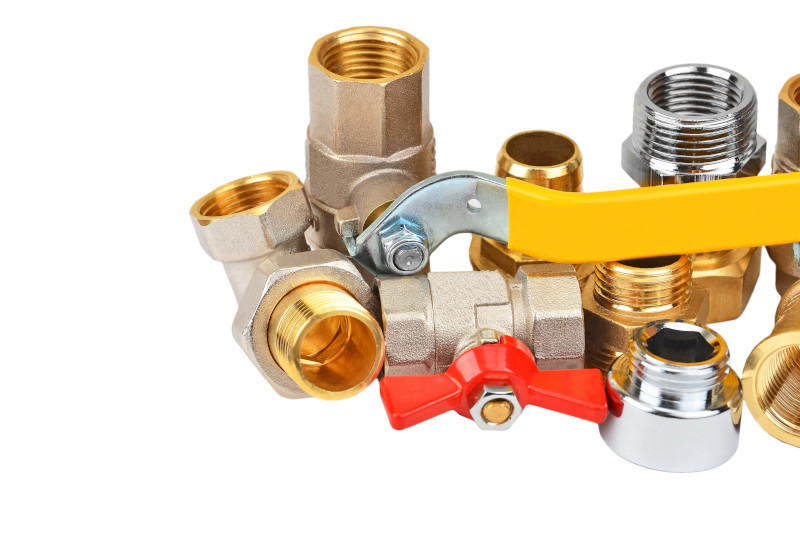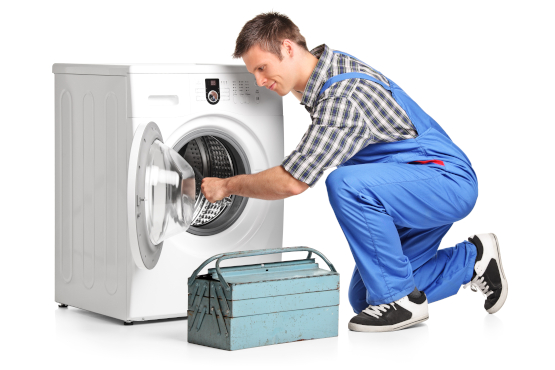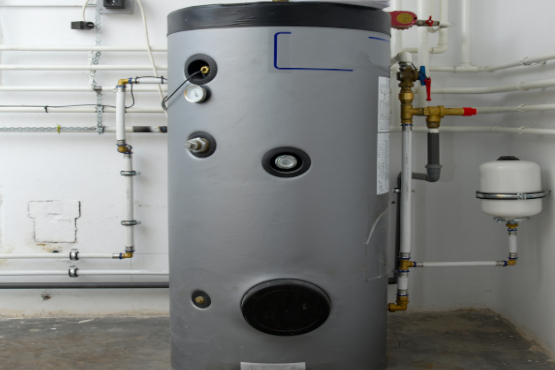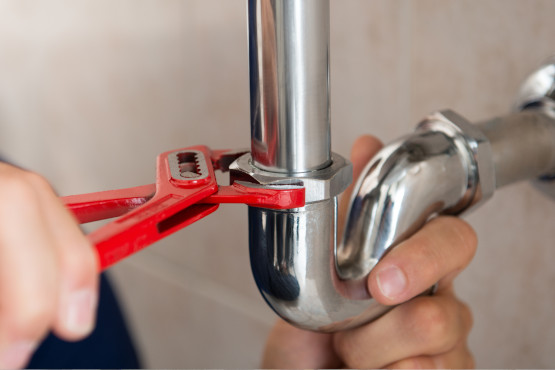Sewer Line Replacement Richmond, TW9, TW10
If you're in Richmond, TW9, TW10, sewer line replacement is vital for keeping your home functioning and odor-free. Look out for signs like persistent bad smells, slow drains, or damp patches in your yard. Damaged pipes can result from corrosion, high water pressure, or tree roots infiltrating the system. Selecting a qualified contractor is essential for a thorough replacement process. Understanding care and maintenance can extend your sewer line's life, and exploring more tips can help you avoid future issues.
Key insights
- Look for licensed and insured contractors with positive reviews and experience in sewer line replacements in Richmond, TW9, TW10.
- Assess the extent of damage and soil conditions, as these significantly influence replacement costs.
- Consider trenchless replacement methods for reduced disruption, though they may be more expensive.
- Prepare your home by clearing access points and notifying neighbors of any required shared access.
- Schedule regular inspections post-replacement to monitor for issues and extend the lifespan of your sewer system.
Understanding Sewer Lines and Their Importance

Understanding sewer lines is essential for maintaining a healthy environment and efficient waste management. These underground pipes carry wastewater from your home to treatment facilities, and their proper functioning prevents foul odors, backups, and environmental contamination. When you consider sewer line landscaping, it's imperative to ensure that roots or debris don’t obstruct access. You may also notice sewer line noise, which can indicate issues that need timely attention. Regular inspections enhance sewer line accessibility, allowing you to identify potential problems early. Common materials like PVC, cast iron, and clay each have different lifespans, emphasizing the significance of maintenance. By prioritizing sewer line integrity, you can avoid costly repairs and contribute to a sustainable waste management system in your area.
Common Signs Your Sewer Line Needs Replacement
When you notice persistent foul odors coming from your drains or yard, it might be time to investigate your sewer line. These odors often signal deterioration or leaks that require immediate attention. Look for unusual lush patches of grass above your sewer line; this could indicate water and fertilizer seepage from damaged pipes. Additionally, if multiple fixtures drain slowly or back up simultaneously, you may be facing blockages or a collapsing sewer line. Water damage, mold growth, or unexplained dampness can also stem from leaks. Gurgling noises from drains often indicate urgent issues. Schedule regular sewer line inspections to catch problems early, and consider advanced drain cleaning techniques and pipe corrosion prevention methods to extend your system's lifespan.
Causes of Sewer Line Damage
Sewer line damage can stem from various factors, making it vital to recognize the underlying causes. One significant issue is pipe corrosion, particularly in older metal pipes like cast iron and galvanized steel, which weakens walls over time, leading to leaks and breaks. Additionally, high water pressure can exacerbate these weaknesses, causing sudden failures. Buildup from water softeners, including calcium and magnesium, also contributes to deterioration in aging systems. Flushing inappropriate materials like grease and cat litter causes clogs, putting stress on the pipes. Furthermore, external events such as earthquakes or nearby construction can shift or damage the sewer lines, resulting in further complications. Identifying these causes is essential for effective maintenance and timely sewer line replacement.
The Impact of Tree Roots on Sewer Lines
Tree roots pose a significant threat to sewer lines, often infiltrating pipes in search of moisture and nutrients. Root intrusion can occur through even the smallest cracks in your pipes, expanding them over time and leading to significant damage. Aggressive species like ash, willow, and poplar are particularly notorious for their destructive growth. As roots grow inside pipes, they create dense masses that restrict flow, resulting in frequent backups and overflows. Seasonal growth exacerbates the issue, as roots become more active during warmer months. To prevent pipe cracking and costly repairs, regular inspection and root management are vital. Staying proactive can save you from severe damage and ensure your sewer system functions effectively.
How Age Affects Your Sewer Line
As your sewer line ages, it becomes increasingly vulnerable to a range of issues that can compromise its functionality. Typically lasting between 75 and 100 years, older pipes, especially those made of cast iron or clay, are more prone to pipe corrosion, cracking, and root intrusion. You might notice that as these pipes deteriorate, they become susceptible to leaks, blockages, and structural failures. This deterioration process accelerates in areas with harsh soil conditions or frequent ground movement, which can further destabilize your sewer line. Regular inspections are essential for detecting age-related damage early, ensuring you can address potential problems before they lead to costly repairs or even complete replacements. Staying proactive can save you significant time and money.
The Importance of Regular Sewer Line Inspections
Aging sewer lines can lead to significant issues, making regular inspections an essential practice for property owners. By conducting routine inspections, ideally every year, you can identify potential problems like tree root intrusion, pipe corrosion, and calcium buildup before they escalate. Utilizing CCTV surveys during these inspections provides detailed visuals of your pipes' conditions, helping you determine if repairs or replacements are necessary. Early detection allows for timely interventions such as relining or patch repairs, ultimately reducing overall repair costs. Additionally, regular sewer cleaning ensures your pipes remain functional and compliant with local regulations, preventing environmental hazards from sewer failures. Prioritizing inspections not only extends the lifespan of your sewer system but also safeguards your property.
The Sewer Line Replacement Process
When you're faced with the need for sewer line replacement, the process typically kicks off with a thorough CCTV inspection to evaluate the damage and determine the best repair method. If traditional replacement is necessary, the excavation process begins, where the damaged pipe segment is removed and replaced with a new pipe. This can take several days, depending on the project's scale. Alternatively, trenchless technology, like pipe bursting or relining, minimizes surface disruption by replacing or lining the existing pipe from an access point. Pipe bursting breaks apart the old pipe while pulling in a new one, ideal for severely damaged lines. The process concludes with pressure testing and another CCTV survey to confirm the new line's functionality and integrity.
Choosing Between Repair and Replacement
Deciding whether to repair or replace a sewer line involves evaluating various factors, including the extent of damage and the type of pipe material. If your pipes are only slightly damaged, trenchless repair techniques, like relining, can effectively extend their lifespan up to 50+ years while minimizing repair costs and excavation. However, if you face complete collapse or extensive corrosion, replacement is often necessary. A professional assessment using CCTV surveys can accurately determine the condition of your sewer line. This assessment helps you weigh the long-term durability of repairs against the potential costs of full replacement. Ultimately, understanding the nature of your pipe material and the extent of damage is key to making the right decision for your sewer system.
Different Materials Used for Sewer Line Replacement
Understanding the different materials available for sewer line replacement is essential after evaluating whether to repair or replace your system. Common options include PVC, cast iron, clay, ductile iron, and concrete, each exhibiting varying levels of pipe durability. PVC is lightweight and corrosion-resistant, lasting over 100 years, making it a top choice for modern installations. Cast iron offers strength and soundproofing but typically lasts 75 to 100 years due to corrosion. Clay and cement pipes, while historically used, are more brittle and prone to cracking, also lasting up to 100 years. Ductile iron combines strength with flexibility, ideal for high-pressure applications. Familiarizing yourself with these material comparisons and installation techniques can help you make a well-informed decision.
Cost Factors for Sewer Line Replacement in Richmond, TW9, TW10
While evaluating the cost of sewer line replacement in Richmond, TW9, TW10, several factors come into play that can substantially impact your budget. First, the extent of pipe corrosion and overall damage affects the price, as severe deterioration may necessitate additional services. Soil conditions also play a role; urban areas with challenging soil types can complicate excavation and increase costs. If your property has tree roots infiltrating pipes, you might face even higher expenses for removal. Additionally, the method used for replacement—trenchless techniques tend to be more expensive but can minimize utility disruptions. ultimately, emergency repairs or urgent scheduling can further inflate the total cost, so planning ahead can help manage your expenses effectively.
How to Choose a Reliable Contractor
Selecting a reliable contractor for sewer line replacement is vital to guarantee the job is done right and within budget. Start by ensuring the contractor is fully licensed, insured, and accredited by recognized industry bodies. Look for positive reviews and high ratings on platforms like Trustpilot and Google, which indicate customer satisfaction. Confirm they provide free site surveys and offer transparent, detailed estimates before work begins. It’s essential they have extensive experience with sewer line replacements, especially using trenchless technology and relining methods for enhanced durability. Additionally, ask about warranties and guarantees on their work, as they reflect the contractor's commitment to quality. Prioritize contractors who also conduct thorough sewer inspections to identify underlying issues effectively.
Questions to Ask Your Sewer Line Contractor
What crucial questions should you ask your sewer line contractor before proceeding with a replacement? Start by inquiring about their experience with sewer line replacements in Richmond, TW9, TW10 and ask for references or case studies. Confirm if they’re licensed, insured, and certified to perform trenchless technology or traditional replacement work. Discuss the recommended methods, like pipe lining or full replacement, and the expected lifespan of the sewer pipe materials. Request a detailed, written estimate covering costs, timeline, and any potential extra charges. Finally, ensure they provide a warranty on their work and clarify their process for post-repair inspections, including the use of inspection cameras to assess the quality of the installation.
Preparing Your Home for Sewer Line Replacement
Before the sewer line replacement begins, it’s essential to prepare your home to guarantee a smooth process. Start by ensuring access points, such as cleanouts or exposed pipe sections, are clear for inspection and repair work. Remove valuable or delicate items from the work area to prevent damage during excavation. If tree roots or external factors may disrupt the work, notify neighbors to coordinate shared access. Scheduling the replacement during mild weather conditions can help minimize delays. You might also need to arrange for temporary water or sewer services, especially if you’re opting for trenchless technology. Lastly, consider using eco-friendly materials to comply with sustainable practices in sewer line mapping and replacement.
Post-Replacement Care and Maintenance
Once the sewer line replacement is complete, maintaining the integrity of your new system becomes essential for long-term functionality. Regular inspections and cleanings are vital; utilizing advanced inspection techniques, like CCTV drain surveys, can help identify potential blockages or damage early. Consider installing a protective lining or coating to reduce corrosion risks associated with various pipe materials. Be vigilant about what you flush—avoid non-degradable materials, oils, or chemicals that can harm your system. Monitoring for signs of leaks or odors is key to catching issues before they escalate. To guarantee peak performance, schedule annual professional assessments and be prepared to implement repair methods as necessary to keep your sewer line functioning effectively.
Preventative Measures to Extend Your Sewer Line's Life
To extend your sewer line's life, implementing preventative measures is essential. Schedule regular inspections and cleanings to catch blockages and early signs of damage before they escalate. Control or remove nearby trees to minimize root intrusion, a leading cause of sewer line damage. Additionally, practice proper water softener maintenance; this helps reduce calcium and magnesium buildup, which can lead to pipe corrosion over time. Address any small cracks or leaks promptly with professional repairs to prevent major pipe failures. Finally, avoid flushing inappropriate materials like oils, fats, and non-human waste, as these can create clogs and chemically deteriorate your sewer pipes. By following these steps, you can considerably enhance the longevity of your sewer line.
Frequently Asked Questions
How Much Does It Cost to Replace Sewer Pipe in the UK?
Replacing a sewer pipe in the UK typically costs between £1,500 and £4,000, depending on pipe materials, length, and damage extent. If you opt for trenchless methods, you could save 30-50% on costs. The excavation process can also impact the overall price, especially if it requires extensive work. Many providers offer long-term warranties on replacements, ensuring durability and peace of mind for your investment. Always consider these factors before proceeding with repairs.
How Much Does It Cost to Get Your Sewer Line Replaced?
Getting your sewer line replaced can feel like breaking the bank! Costs typically range from £3,000 to £8,000, influenced by factors like pipe length and depth. If you're facing pipe corrosion issues, consider trenchless replacement options, which are often more economical, ranging from £2,500 to £6,000. Regular sewer line maintenance is key to preventing costly repairs. Always consult professionals for accurate assessments and quotes tailored to your specific situation.
Why Is Sewer Line Replacement so Expensive?
Sewer line replacement is expensive due to several cost factors. Material choices, such as using durable yet costly pipes, significantly impact your budget. Additionally, permit requirements can lead to extra fees and delays. The process often involves extensive excavation and specialized equipment, further driving up costs. Finally, if your pipes are older or located in hard-to-reach areas, the need for careful handling and potential extra repairs can increase the overall expense.
Who to Call to Replace a Sewer Line?
To replace a sewer line, you should call licensed plumbing contractors who specialize in trenchless technology options. They’ll help you choose the right sewer pipe materials, ensuring durability and efficiency. If you face an urgent issue, look for emergency plumbing services that offer quick assessments and solutions. These professionals use modern techniques that minimize disruption, making the process smoother and less invasive for your property. Always check their credentials and customer reviews before hiring.
Summary
In Richmond, TW9, TW10, nearly 20% of sewer line issues arise from tree root intrusion, highlighting the importance of proactive maintenance. By understanding your sewer line's needs and recognizing early warning signs, you can avoid costly replacements. Investing in regular inspections and employing advanced techniques like CCTV surveys will guarantee your sewer system runs smoothly. With expert contractors at your side, you can confidently tackle any sewer line challenges, ensuring a long-lasting, efficient waste management solution for your property.
We Provide The Following Services:
-Fall heating systems, -Radiators, –Boiler installation, -Boiler replacement, –Boiler servicing, -Thermostats, -Gas valves, Circuit boards, –Drainage & waste pipe, -Blocked manholes, -Leaking dishwashers, -Gas engineers, -Heating engineers, -Corgi plumbers, -Emergency boiler repairs, -Gutter cleaning, -Gas safety certificates, –Appliance repairs, -Landlord certificates, -Gas safety checks, –Boiler repairs, -Leaks, Burst pipes, -Outside taps, Taps, -Tap washers, -Cold water tanks, –Washing-machine repairs, –Dishwasher repairs, -Bathroom refurbishments, -Kitchen installations, -General Plumber Repairs, -Disabled bathrooms, -Disabled WC, –Blocked drains, -Blocked toilets, -Blocked sinks, -Macerators, Sani flo, Saniflo, -WCs, Sinks etc, -Immersions, -Immersion Heaters, -Cylinders, Sinks & Sani- Vite, -Shower repairs, -Electric showers, -Power Showers, WCs, -WC Cisterns, -Syphon, Sani-flo, Pumps, -Boiler installations, -Boiler repairs, -Emergency plumbing, -Gas cooker repairs, -Power flushing, -Central heating installations, -Underfloor heating repairs, -Leaking radiator valves, –Emergency Plumbers, -Leaking toilets, –Boiler service & maintenance, -Boiler breakdowns, -Local Plumbers, –Electricians Richmond, -Leaking boilers, -Leaking washing machines, –Blocked toilet, –Broken pipe, –Burst pipe, –Clogged toilet, –Clogged toilet repair, –Kitchen plumbing, –Kitchen sink plumbing, –Leak detection, –Leaking toilet, –Plumbers near me, –Plumbing & heating, –Sewer line replacement, –Shower installation, –Shower repair, –Sink leaking, –Sink repair, –Slab leak repair, –Water heater repair, –Water leak repair, –Plumbing and heating
We Cover:
TW: (✔ TW1, ✔ TW2, ✔ TW3, ✔ TW4, ✔ TW5, ✔ TW6, ✔ TW7, ✔ TW8, ✔ TW9, ✔ TW10, ✔ TW11, ✔ TW12, ✔ TW13, ✔ TW14, ✔ TW15, ✔ TW16, ✔ TW17, ✔ TW18, ✔ TW19, ✔ TW20) Twickenham, St. Margarets, Strawberry Hill, Whitton, Fulwell, Hounslow, Lampton, Hounslow West, Hounslow Heath, Cranford, Heston, Osterley, Heathrow, Isleworth, Brentford, Kew Bridge, Syon Park, Richmond, Kew, North Sheen, Ham, Petersham, Richmond Hill, Richmond Park, Teddington, Bushy Park, Hampton, Hampton Hill, Feltham, Hanworth, North Feltham, East Bedfont, Hatton, Ashford, Sunbury-on-Thames, Shepperton, Upper Halliford, Charlton, Littleton, Staines-upon-Thames, Egham Hythe, Laleham, Stanwell, Stanwell Moor, Wraysbury, Sunnymeads, Hythe End, Englefield Green, Thorpe, Spelthorne, Elmbridge, Windsor and Maidenhead, Hillingdon, Runnymede







